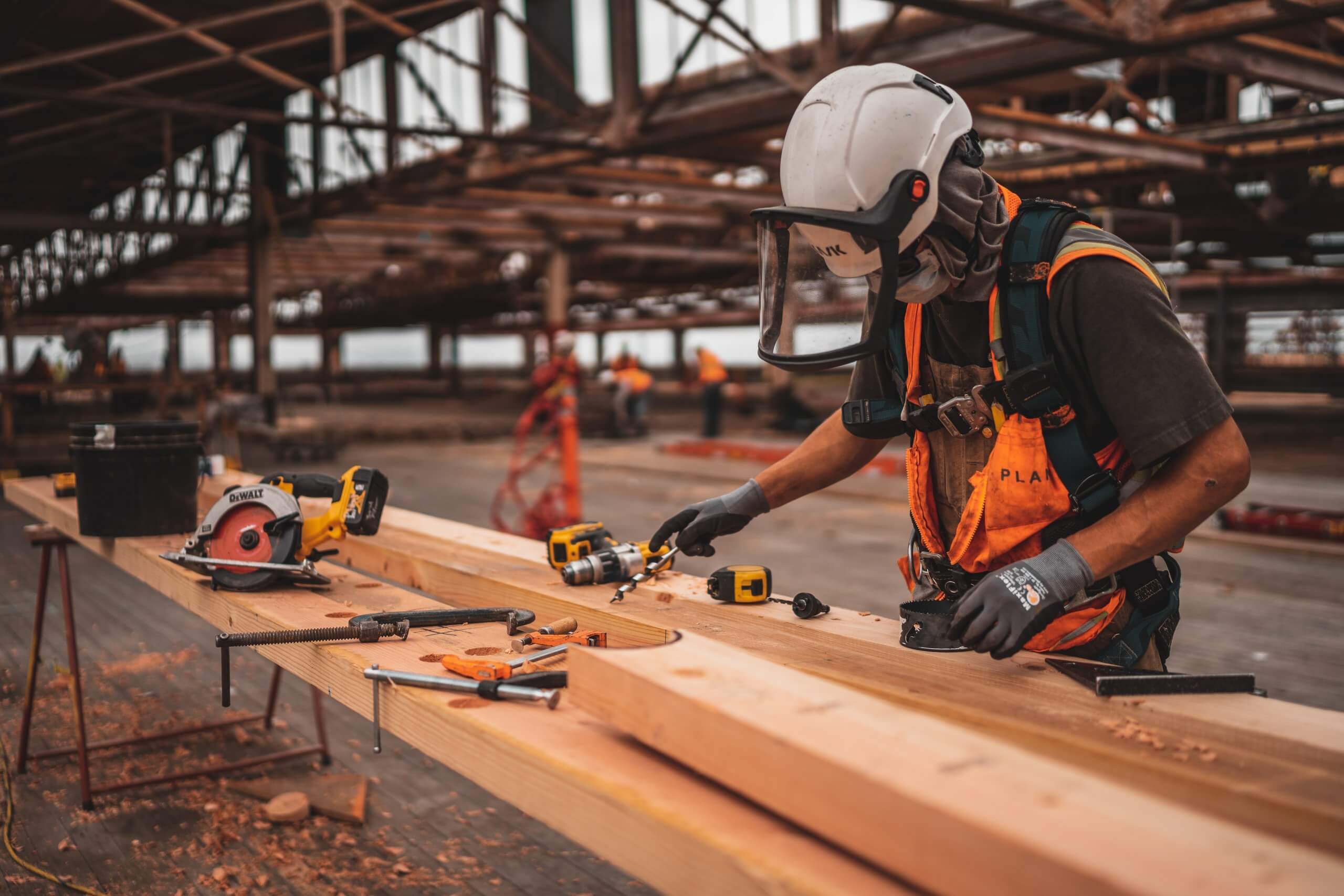New findings reveal that heat stress affects the bodies of those of us who work mostly outdoors, and may also impair work efficiency. In the coming years, given the climate crisis, the phenomenon is only expected to get worse. Will the heat in the future force us to work harder?
By Noa Rubin, Angle - Science and Environment News Agency

In recent weeks, staying outside for a long time, outside of an air-conditioned space, seems like an impossible task. The harsh heat conditions and the constant rise in temperatures during this period are felt even more strongly by the outdoor workers - who spend most of their day hours away from the air conditioner, in the sweltering heat. this difficulty brought in the last few weeks the workers of the American courier company UPS to start a strike in front of the company's management buildings and demand that it provide them with means of protection against the heat.
This is not a purely subjective difficulty: bstudy Conducted by an international team of researchers and recently published, it was found that occupational heat stress affects the bodies of workers as well as harms their efficiency - and that with global temperatures rising as part of the climate crisis, the effects of heat will force us to work harder to earn a living.
In the new study, published in the scientific journal Temperature, several dozen previous studies were analyzed, so that it included data on thousands of workers, from 21 countries, who were engaged in 41 different professional roles. The researchers calculated the effect of heat on body temperature, heart rate and the amount of fluids in the body.
The researchers found that occupational heat stress increases the outdoor workers' body and skin temperature, the heart rate and the specific gravity of the urine (increase in the concentration of solutes in the urine, an index that may indicate, among other things, dehydration), and that it is responsible for two-thirds of the reduction in the rate of metabolism in their bodies. Beyond that, the heat load impairs their ability to perform physical work, so as mentioned, in view of the worsening climate crisis, those of us who work a lot outside will have to put in more effort to reach the same output that is expected of us.
The body slows down to protect itself
"Occupational heat stress may lead to two main health hazards: heat stroke and dehydration," explains Prof. Yuval Haled, an expert in the physiology of the human body under stress, former chief physiologist of the IDF Medical Corps and head of the master's degree program in the Faculty of Sciences at the Kibbutzim Seminary.
Heatstroke is an event in which the body temperature rises above 41-40 degrees Celsius, which is accompanied by damage to systems such as the heart, liver and brain, and may even lead to death. Even when heat stress is not fatal, it may lead to long-term dangers, such as damage to the body's heat regulation system.
Next to the heat stroke is the dehydration, which is an increased loss of fluids. Dehydration can cause the disruption of activity or the destruction of many mechanisms in the body, such as nerve conduction and digestion, and it makes the blood thicker, so that it is more difficult to move it in the body (which can cause damage to the activity of the heart and the exchange of gases such as oxygen, and therefore damage to many organs). In addition, dehydration affects the body's ability to regulate heat - in this condition there is a smaller amount of fluids in the body and the ability to sweat is impaired. Dehydration cases lead to poor functioning, and in extreme cases can even be fatal.
Why do we become less efficient workers when we are exposed to high temperature? "There is a mechanism in our brain that protects us from the dangers of heat stress," explains Khaled. "Menstruation inhibits the movement system - which we feel as fatigue. Basically, when the physiological stress increases due to the heat, we, naturally and unconsciously, self-regulate - lower the work rate to protect ourselves." Indeed, the study showed, for example, that under the heat load the hand movements of the workers decrease, and become slower.
Despite the body's attempt to protect itself, in practice, in many cases the workers are required to have the same output, even under the heavy heat loads. Since they are not given the opportunity to cool themselves, and in light of their desire to reach the same output in order not to harm their livelihood, in practice they become exposed to many health hazards. Beyond that, there is often a danger in this - if we are dealing with delivery workers, for example, who spend a large part of the time driving, the exhaustion from the heat may lead to an increase in the chance of accidents.
A decrease in human resistance to heat
It should be noted that man, at his core, is definitely a creature designed to work in heat. "Our heat regulation system is better than other mammals - who sweat less than us, for example," says Khaled. "We were designed to handle prolonged efforts in high heat." However, according to him, in recent decades there has been a significant decrease in our resilience and our resistance to the heat load. "Today we are used to living in air conditioning, the percentage of obesity is increasing, the incidence of chronic diseases is increasing and we tend to a sedentary lifestyle. All of these make us more fragile and more prone to illness, and make it difficult for us to adapt to environmental changes." All of this, as mentioned, is accompanied by the increase in global temperatures, which may result in the fact that physiologically, our heat production will exceed our ability to dissipate heat - which may endanger and injure us.

One of the findings to which the study refers is that when it comes to women, the health danger due to the heat load is higher than when it comes to men. One reason for this is that, from a physiological point of view, women's ability to regulate their body heat is lower: women sweat less than men, and their ability to disperse the heat is less. Beyond that, the research shows that women will tend to exert themselves more, and as a result also produce more heat, in order to compare their output with that of men, and not appear weaker than them.
Allow workers protection from the heat
The protesting UPS workers live in New York - a city with a very hot and humid climate in the summer. New York suffers greatly from the "urban heat island" phenomenon, in which it is much hotter inside the cities than outside them, due to the many skyscrapers that block the wind and absorb the sun's heat all day long, and due to The planning of the streets in the form of Sheti and Arab. In addition, the trucks that many of the workers travel in are also not air-conditioned.
Either way, the story of the UPS workers is not unique to the United States, and it also shows the great difficulty we, the workers in Israel, have in protecting ourselves from the inherent dangers of working under the climatic changes. "In general, the issue of safety and health, including working at high temperatures, is not very developed in Israel, and there is little involvement of the workers' organizations in the matter," says Prof. Guy Mondelek, head of the Department of Labor Studies at Tel Aviv University and an expert in the field of labor law. It is also important to remember that foreign workers in Israel are often underprivileged workers - many of them live on low wages and come from low-income backgrounds (especially when it comes to construction and agricultural workers). As such, they may fear expressing opposition - which further reduces their ability to defend themselves.
Khaled says, as the research also shows, that there is an urgent need to increase safety in the work done outside, and to provide different ways to protect the workers from the dangers described. How can this be done? According to the researchers, workers should be provided with air-conditioned spaces, which they can enter every certain period of time and cool off a little. This, in addition to merging the vehicles they drive in. Another step is to give cold water and ice to the employees continuously and constantly, encouraging them to drink a lot. Also, according to them, it is necessary to pay attention to a benevolent time-rest distribution, which will reduce the dangers. Also, as long as they see that a certain number of employees is not enough to create the output required during the hot hours, they recommend seriously considering the addition of an employee. In a broader sense, the authors of the study suggest anchoring the protection of workers against the dangers of heat in legislation or wide-ranging agreements.
Khaled adds that there is great importance in "educating" the population - both the workers themselves and the employers - in two aspects. First, the workers and employers must be informed of the specific, and serious, dangers that lie in working long hours under the blazing sun. In this way, it will be possible to encourage them to drink a larger amount of water, and to rest from overexertion. On top of that, Khaled emphasizes that in order to increase our initial tolerance and our immunity to heat, we must take care to maintain health and a good level of fitness.
Many of these measures require employers to take care of their employees. Today, there is no clear obligation in the law according to which the employer is required to address in some way the dangers of the heat. According to Mondelek, even when there is a safety and security officer at different workplaces, the field of environmental hazards is not something they often pay attention to. However, considering that the quality of work decreases when workers are required to do it under heat loads, also in the economic aspect, protecting workers from the heat is also good for the employer.
More of the topic in Hayadan:
